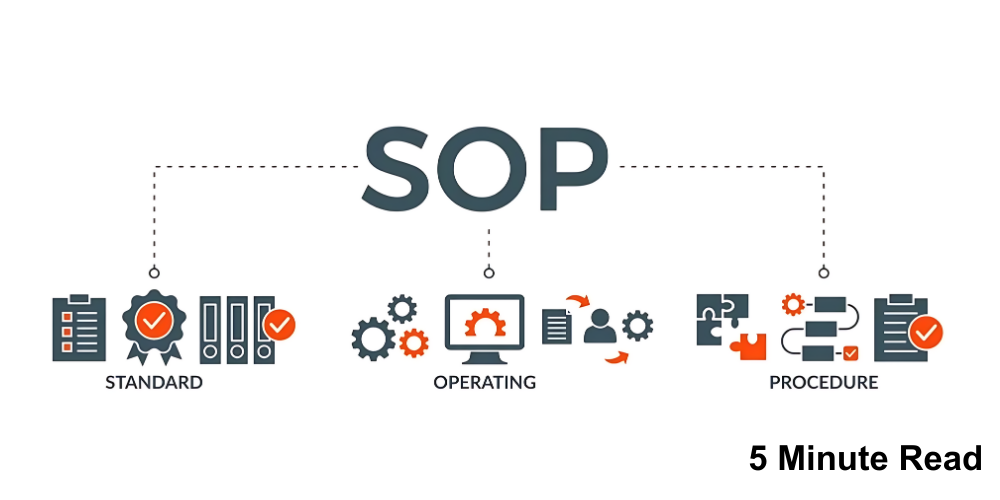Master Learning Management Systems: The 10 Indispensable Role of Standard Operating Procedures
In a computer era where unlimited information flows constantly and offers boundless learning opportunities, Learning Management Systems (LMSs) have become essential for organizations seeking to provide training, education and development.
But making the most of LMS requires more than implementation; what is needed is management, too. This is where Standard Operating Procedures (SOPs) come in—for the smooth running of an LMS.
This blog will discuss why SOPs are so important for mastering Learning Management Systems.
Save Thousands Of Dollars With Coggno Prime Subscription
What Is An SOP?
A standard operating procedure (SOP) is a clear set of step-by-step instructions that describe how to perform a particular job or process. By giving everyone in the company a uniform way of doing things, SOPs guarantee consistency and efficiency. Whatever task needs doing within your organization – whether it involves dealing with customer inquiries, maintaining inventory or carrying out safety inspections, there will be an SOP for it! These help keep procedures running smoothly and efficiently.
Must Read: What Does LMS Mean: Uses, Benefits, and Types of LMS
What Is The Role Of SOP In An LMS?
1. Guidance And Standardization
Many individuals within the LMS ecosystem need to be shown the way, and SOPs do that exactly. SOPs ensure uniformity throughout the system by setting rules for certain tasks, such as creating a course, enrolling users, managing content and conducting assessments. No matter how experienced or novice one may be, these instructions offer the guidance required to operate smoothly in an LMS.
2. Training And Onboarding
Newcomers can find Learning Management Systems overwhelming. They will have zero idea of where to start or what is expected of them while using such platforms. SOPs are designed as training tools for those newcomers. It provides step-by-step instructions covering basic navigation to advanced functionalities so that beginners can learn things and get the most out of it on day one.
3. Compliance And Quality Assurance
Where statutory obligations and standards change constantly with time, organizations must ensure they comply with SOPs and maintain the integrity of their LMS operations. The compliance guardrails embedded in SOPs include regulatory requirements, data protection protocols and quality control measures for LMS administration. By following the SOPs, the organizations reduce the chances of risk, protect private data and foster trust among stakeholders, thus making learning more secure.
Intro To Quality Assurance And Quality Control
4. Troubleshooting And Problem-Solving
With technology taking over everything in the digital world, there is bound to be a glitch or two here and there. Having an SOP can help administrators meet such challenges head-on because they know the best practices for troubleshooting the issue and how to escalate it. Standard operating procedures act as a guide for quick fixes like technical bugs, responding to user inquiries or improving system performance within LMS, thereby reducing downtime while maximizing productivity.
5. Change Management
Change is the only constant, and LMS is no exception. SOPs serve a crucial role in ensuring effective change management. Standard operating procedures (SOPs) provide an avenue for documenting alterations made to systems of any kind, such as introducing new features, revising policies or adjusting to current trends. Organizations that view change through their SOPs encourage adaptability, innovation and continuous improvement within the LMS environment.
Must Read: LMS Integration In 2024: Types, Benefits, And Challenges
6. Resource Allocation and Optimization
In an LMS environment, standard operating procedures are essential for resource management. SOPs ensure that the available resources are used best by specifying how they should be allocated. It might involve assigning instructors or scheduling courses and determining bandwidth or storage space, among other things. Doing so helps organizations get the most out of their investments in such systems while also preventing any blockages from occurring and keeping everything running seamlessly throughout.
7. Performance Monitoring And Evaluation
SOPs monitor and evaluate LMS platform performance and its users. It allows administrators to follow up on progress, identify areas for improvement and make decisions based on data by setting key performance indicators (KPIs), metrics, and reporting mechanisms. Furthermore, it evaluates course effectiveness and measures user engagement or uptime of a system, among many other tasks.
8. Risk Management And Contingency Planning
With growing technology, cyber threats and system failures are omnipresent. SOPs help organizations mitigate this risk by providing backup procedures and contingency plans within their LMS operations. Furthermore, SOPs proactively identify potential vulnerabilities and establish response protocols to ensure smooth business operations despite such adversities.
9. Empowerment Of Users And Their Involvement
SOPs help users easily navigate the LMS platform and provide them with the necessary knowledge, skills and resources. Self-help guides, FAQs and interactive tutorials allow users to solve problems independently, discover hidden features and take charge of their learning process. Furthermore, SOPs create an atmosphere of engagement where feedback is welcome, suggestions are sought from those who use the system, and improvements based on users’ needs become part of the LMS ecosystem.
10. Ongoing Betterment And Originality
SOPs do not remain stagnant; they grow with organizational requirements and industry developments. When organizations adopt a culture that values continuous improvement alongside innovation, SOPs become powerful agents for change within an organization’s learning management system setup. It can involve anything from accepting new technologies to refining old processes or trying different ways of approaching instruction design.
Closing: Whatever Leads To Positive Change Towards Excellence Is Guided By SOPs
In the universe of Learning Management Systems where change meets learning, standard operating procedures (SOPs) are the foundation for effectiveness, uniformity and brilliance. These SOPs help individuals understand how to use any system by taking them through it step by step. They also ensure conformity with regulations and standards while acting as quality control mechanisms.
Maximize Training, Minimize Costs With Coggno Prime
Found this blog useful? Read another blog









